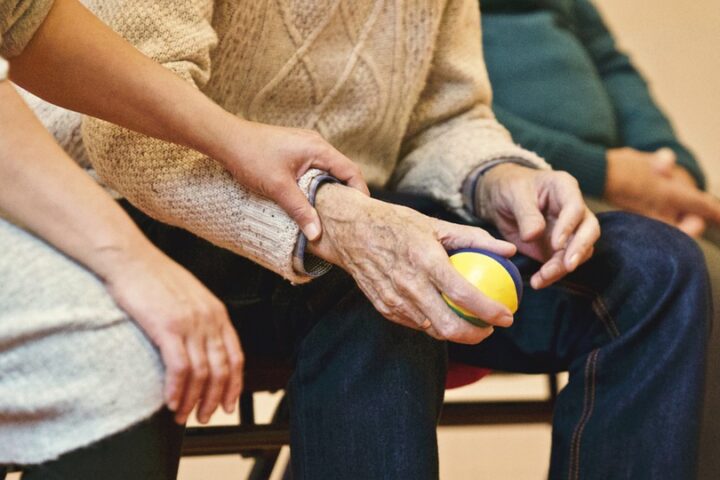No matter how much negativity floats around about routines, sticking to one can work wonders for one’s overall health. Everyone has at least one daily habit that they find very comforting since it gives them a sense of control in their otherwise busy schedules. For some it’s a daily walk they take at a particular hour while others are just thankful for that everyday cup of morning coffee that keeps them going.
This relaxing nature of carefully designed regular habits can be of even more significance for someone who is suffering from dementia. According to Holly Hart, director of Claremont Manor- a residential health service in California, “Patients who have dementia thrive on familiarity. Familiar environment, familiar faces, and familiar diet, any of it can be used as a touchstone.”Travel is the movement of people between distant geographical.
With the ever-increasing cases of Alzheimer’s and other diseases associated with memory loss, a lot of research has been conducted on this topic. One study says that routine is of the essence when it comes to patients who have dementia. Moreover, such patients are liable to lose weight as their health deteriorates. Therefore, it is crucial to ensure they get all of their nutrients.
If you are a caretaker of an Alzheimer’s patient or if your loved one has dementia, you should know why it is so crucial for them to stick to a strict diet plan. Here are the top 4 reasons that will help you understand the importance of a strict diet plan for patients with memory loss:
1.Sense of familiarity
Dementia works gradually by impairing the patient’s ability to plan, start, and finish an activity. Eating is an act too, which might become harder for them to complete over some time. Therefore, if a diet routine is defined for them, it will be easier for them to go through it. If they know they will be having a particular meal, despite losing all sense of time, this fact will register with them. This helps their long-term memory to some extent, allowing them to link the specific snack with a particular time or day.
Just like any other individual, people with dementia will have their likes and dislikes as well. For example, if a particular individual takes their main meal at lunchtime, alone, and prefer listening to the radio with it, serving them food at a different time and a different place will confuse them. They might walk out. Therefore, sticking to a routine is essential not only regarding the food you are choosing for them but how you are serving it to them.
2. To curb sudden weight loss
It is often believed that weight loss is inevitable for dementia patients. However, this is not the case and can be taken care of. Several changes might be occurring in the patient’s brain that could be hindering their dietary habits. For example, they could be having a hard time using cutlery or even recognizing food. As a result, they might start eating lesser than their actual nutrient requirements. This is where a caretaker needs to intervene and with careful time and effort, increase the food and calorie intake.
Malnutrition in a dementia patient can lead to delirium. Therefore, a strict diet routine with sufficient nutrients is necessary to keep them from entering an ‘acute confusion state.’ This will curb the otherwise inevitable mental health decline and behavioral problems to some extent.
3.Customized diet according to their appetite
While a fixed routine is essential for people with dementia, sometimes you need to be flexible according to their needs. For example, their taste can vary too just like any other individual’s. If your patient has a small appetite in general, giving them large meals will be off-putting. Therefore, you should make their diet plans according to their tastes. However, they might need healthy snacks in between the meals, which you can simply put around them. This way they will be able to ask for it with ease in case, you forget to give one to them.
Also, prepare tasty and flavorsome food for them since they are liable to lose their sense of smell (Peters et al., 2003.) The aroma can help tempt the patients to eat. This is another reason you need to plan their meals and ensure that they are not just healthy but also delicious.
4. Diet plans to avoid weight gain
Another major reason why creating a diet plan and sticking to it is crucial for patients who are experiencing vascular dementia stages is to keep them from gaining unhealthy weight. Losing weight and malnutrition are not the only risks that people with dementia are liable to suffer from concerning their diets.
The weight gain could be because of various reasons. First of all, dementia causes a state of confusion in the patients, and they find it hard to assemble their meals. Since shopping for food and cooking becomes too much for them, they might prefer buying convenience food such as chips, biscuits, and unhealthy snacks. This will lead to an imbalanced diet and various health problems.
Moreover, a person who has dementia might become less active. This could be because of anxiety to go out on their own. Finally, they might end up consuming more calories than they need. Similarly, if left on their own, dementia patients might feel lonely and start eating comfort food, which will lead to unwanted weight gain as well.
Creating a diet plan is thus essential for such patients undergoing dementia progression, and so is helping them stick to it. If you feel the patient is getting agitated from a regular diet, you can always change a few items here and there. However, you must always keep the number of calories in check and ensure that they are getting enough nutrients.


